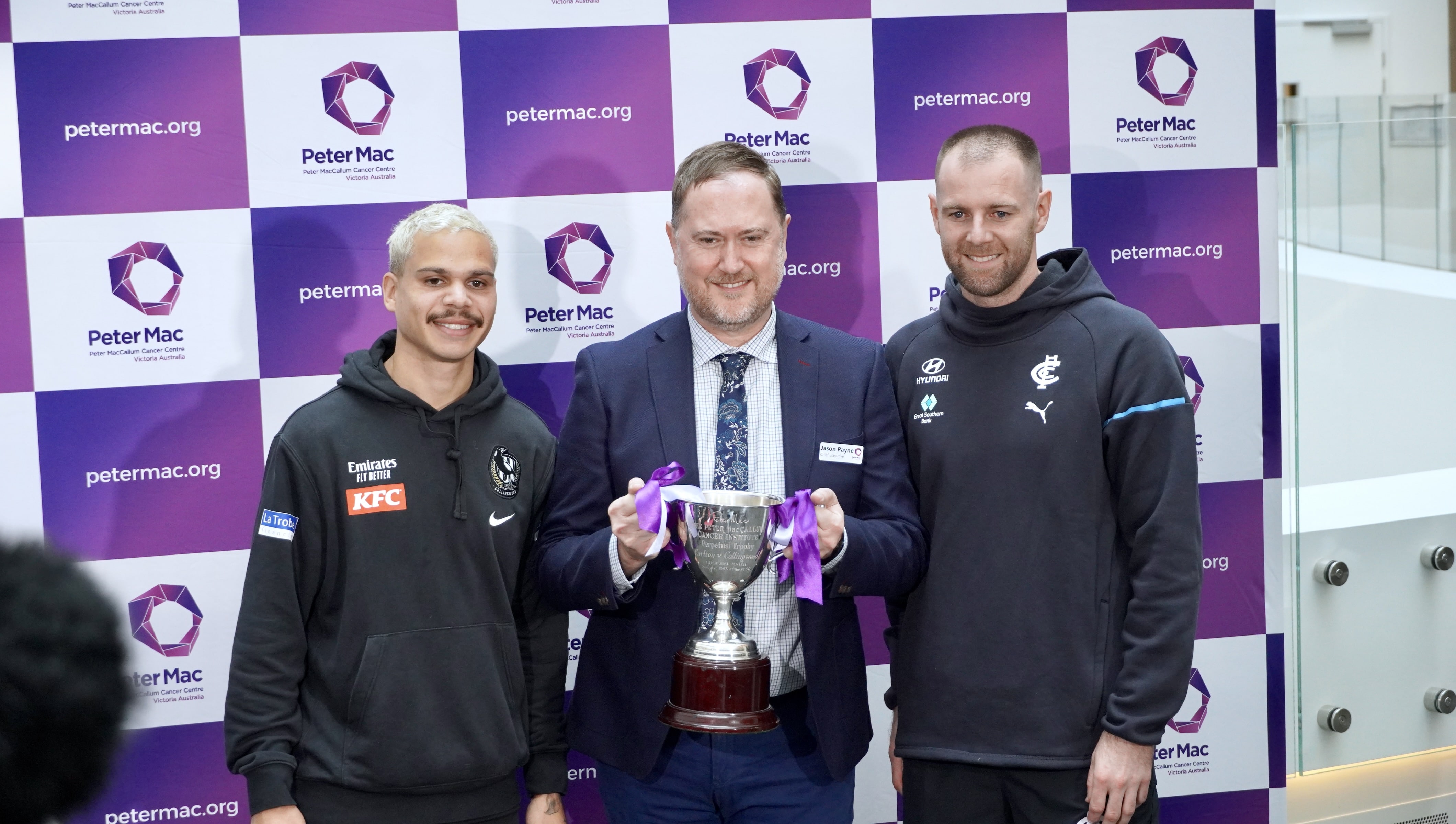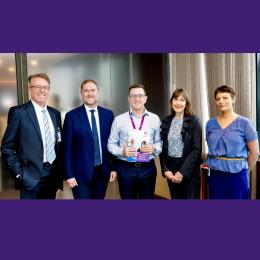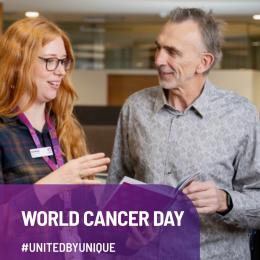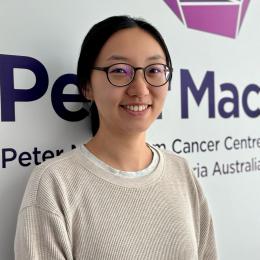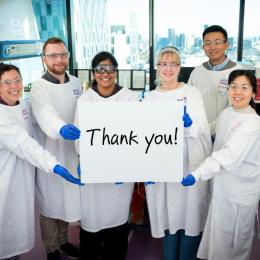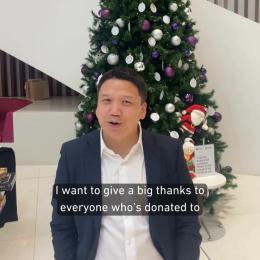Dr Thai is working to create kinder and gentler cancer treatments
4 min read 31 August 2022
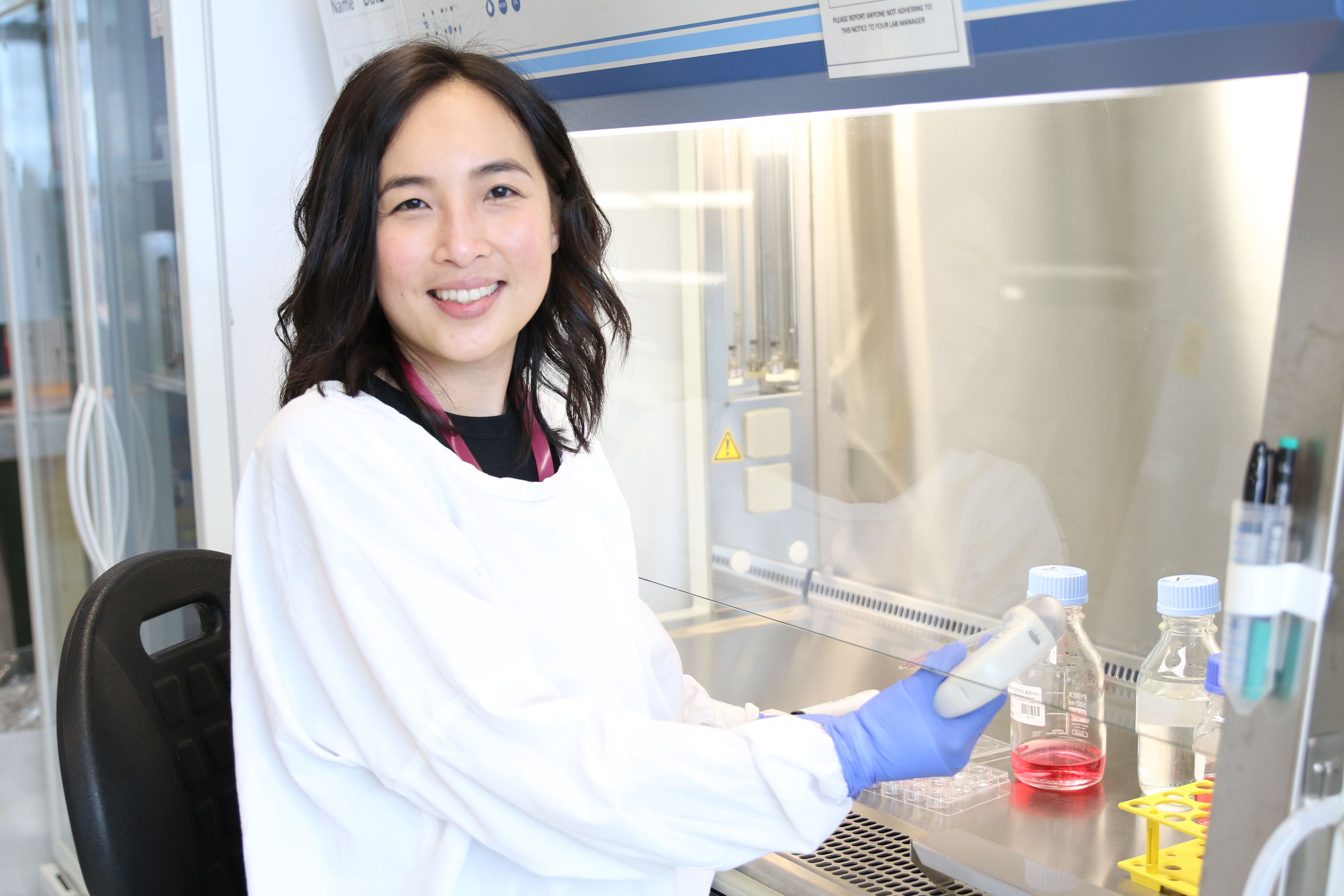
Dr Alesha Thai’s work is focused on head and neck cancers – but the discoveries and breakthroughs she makes in this field have the potential to translate into all cancer types.
By first taking a biopsy of their tumour and testing new combinations of exciting new cancer drugs with existing treatments in the lab, Dr Thai’s research increases the likelihood of patients getting the most effective treatment for their cancer type.
"This could make a huge difference to cancer patients.
"If you can go in knowing that it's a 50% chance of response, or 60% chance of response, that makes such a big difference to patients. It means we can identify which therapies will work with patients before we use them.
"There is a real chance this research will identify new ways to treat people."
- Dr Thai
This will help to give a person the best treatment sooner, and give them a better chance at being cured. Supporters like you are an essential part of what makes cutting-edge research like this possible. Thank you.
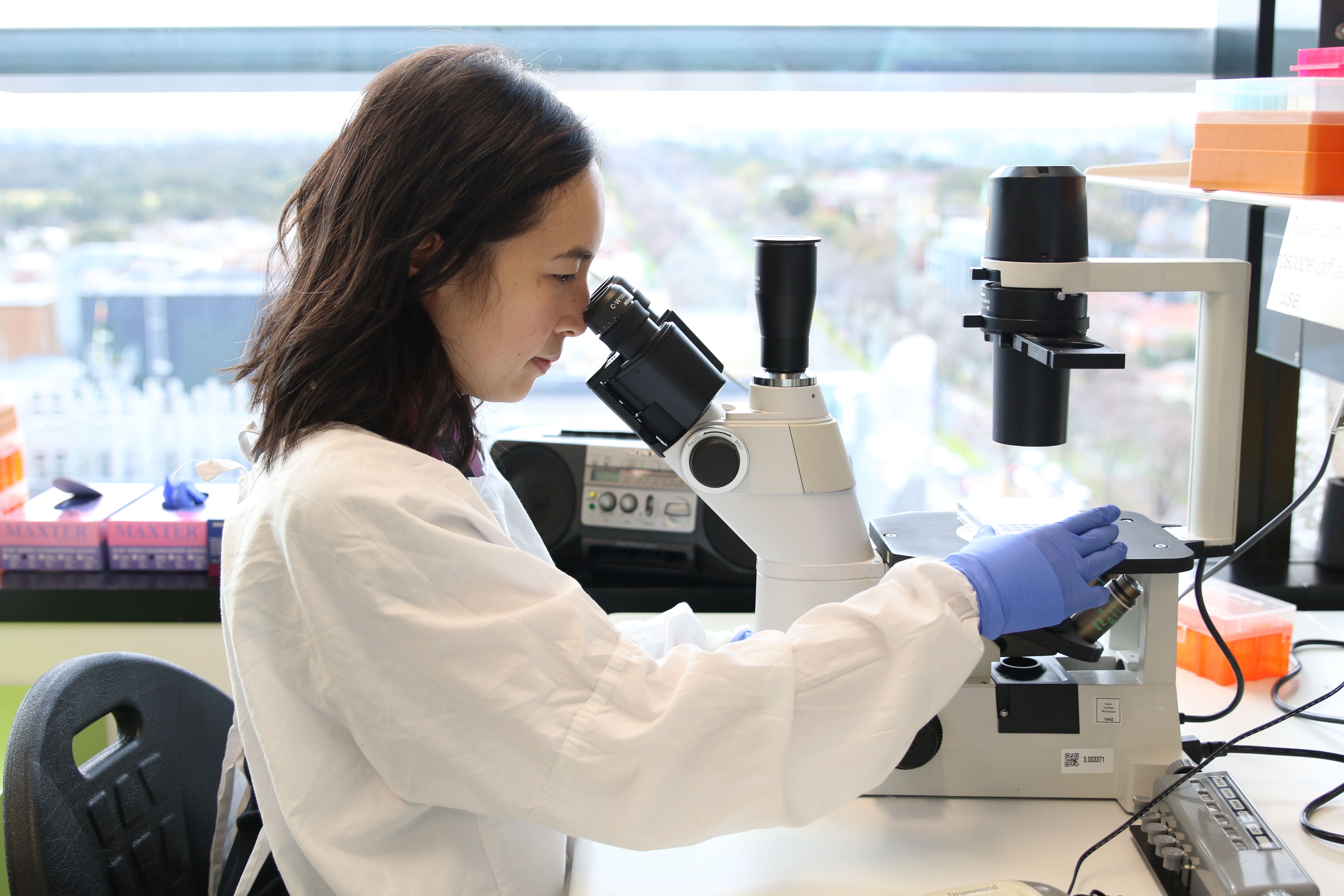
Creating more effective treatments for head and neck cancers
Throughout her career as an oncologist, Dr Thai always had an interest in head and neck cancers. So, it was a natural choice for her to come work and study at Peter Mac, the largest referral centre in Victoria for patients with head and neck cancers.
"The Head and Neck team here at Peter Mac are amazing, and not just the medical oncologists, but also the radiation oncologists, the surgeons, the dieticians, the speech pathologists. Because head and neck cancer can affect patients in so many and very serious ways, a lot of people are needed to manage a patient's disease.
"The team is just lovely and everyone's very supportive, very motivated, and we all have the same goal."
- Dr Thai
Head and neck cancers are currently the seventh most common type of cancer in Australia and its effects can be debilitating for those affected with it.
Head and neck cancer patients can lose their ability to talk, eat or drink, and in some cases treatment can cause patients to lose their sense of taste or vision. It can be a very damaging cancer that has a major impact on a patient’s quality of life.
Which is exactly why Dr Thai is determined to develop kinder and gentler treatments with far less side effects.
"Head and neck cancers can result in a lot of symptoms from the cancer itself, or from treatment, and can impact enormously on patients. I really feel for them.
"Long-term, I really want to be able to advance treatment for patients with head and neck cancer to make a difference in their lives."
- Dr Thai
Through her research, Dr Thai is investigating different ways doctors can deliver the most effective treatment for each patient sooner, while also protecting them from unnecessary side effects.
Looking beyond the standard approach
A major challenge with head and neck cancers is that you want to avoid surgery as much as possible because of where the tumours are located.
Typically, oncologists will attempt to treat head and neck cancers with a combination of chemotherapy and radiotherapy. However if the treatment is ineffective and surgery becomes the best option, surgery to remove the cancer can involve removing the patient’s tongue or voice box.
One way Dr Thai is addressing this challenge is by growing mini-tumours in the lab and exploring what treatment options are available to patients beyond the standard chemoradiotherapy approach.
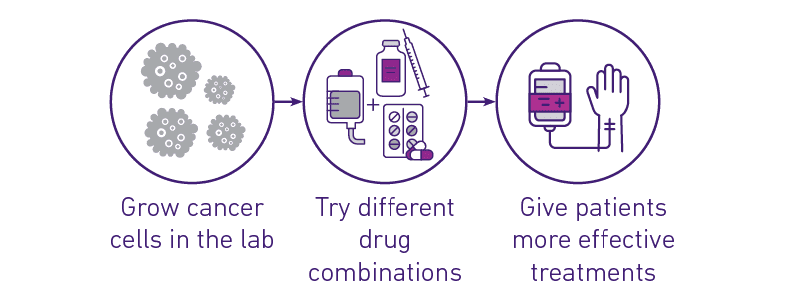
"I'm looking at trying different drug combinations with these cancer cells in the lab, and then trying different drug combinations and different concentrations to see what works best.
For example, there's a new group of drugs that has been developed recently that are very exciting and there's not been much research in using them in combination with more common drugs that we use to treat a cancer like nasopharyngeal carcinoma for example.
- Dr Thai
Already this project has produced promising results, with Dr Thai keen to investigate further. She believes that her research will open the door to discovering even more effective treatments for those with head and neck cancers and reduce the negative side effects that are often associated with chemotherapy and radiation therapy, along with avoiding surgery altogether.
For Dr Thai, it isn’t just about treating the cancer itself, but also improving the quality of life for patients as they go through treatment and recovery. As a researcher and clinician at Peter Mac, she is in a special position to directly see the impact of her research on head and neck cancer patients.
"It's like a two-way street, often when I am seeing patients, I always try and actively think about what things that we can do to improve their outcomes or things that we can explore to better understand why their cancer is behaving the way it is.
"And then, when I'm in the lab, it directs my research more because I can see a clear link to patients and I try and direct my research in a way that can really translate to benefits for patients."
- Dr Thai
The future of immunotherapy for head and neck cancers
Another promising research project Dr Thai is involved with is the use of immunotherapy in treating head and neck cancer patients.
As you may know, immunotherapy is a recent breakthrough for cancer treatment. It is often used alongside or instead of traditional treatments such as surgery, chemotherapy and radiotherapy and has shown fantastic results in some cancer types.
What Dr Thai is trying to discover is how immunotherapy can be used to help develop better and kinder treatments for patients with head and neck cancer.
"I'm looking for a type of immune cell that can be found around tumour cells. And if they're found at a high level, it can indicate the patient may respond better to immunotherapy. And currently the problem with immunotherapy in lots of cancers is that only about one in five patients currently respond to the treatment.
"Not only are we trying to figure out who's going to respond to immunotherapy, but we’re also looking at why is it that there are people that don't respond? What else can we do to help them respond? Or is there another way we can treat this cancer for the people who don't respond?"
- Dr Thai
For Dr Thai, it’s an exciting time in cancer research right now with this particular project showing encouraging results and she’s looking forward to collaborating with international cancer centres in Hong Kong and Singapore as she continues her research.
While on the topic of her immunotherapy project, Dr Thai also reminds us of how important cancer research is and how our current understanding of immunotherapy and all its benefits only exist because of the research conducted by other researchers decades ago.
"I think the hardest thing with science sometimes is that you can be looking at something relatively obscure and you may not realise how important it is until years later, when some pieces of the puzzle might fall into place and then that's when treatment paradigms can change.
"A perfect example of that is immunotherapy. Because the people who discovered those specific interactions and what they do in a normal human body, did that research over 20 years ago and it’s only just recently that they won the Nobel Prize for it.
"They couldn’t appreciate the actual significance of what they first discovered 20 years ago because, at that particular point in time, they didn't know. But because of that discovery by these two groups, that has completely changed the treatment landscape for patients with cancer. And all from a discovery that you wouldn't have necessarily predicted that would have done so."
- Dr Thai
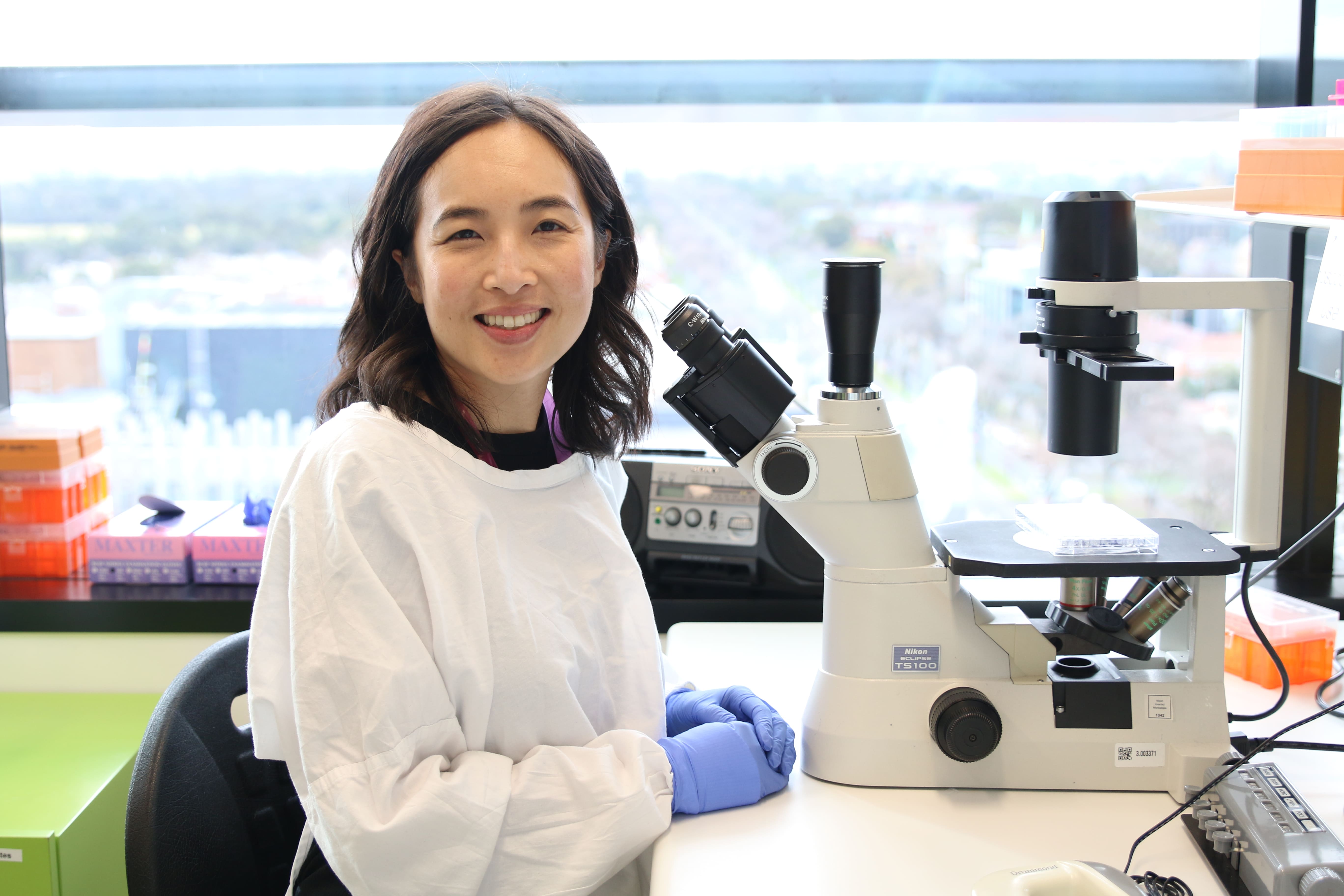
@Follow us on Instagram (@SupportPeterMac)

